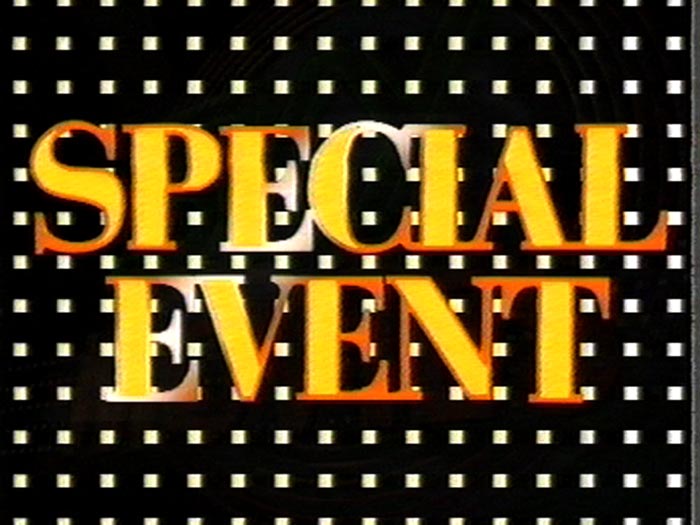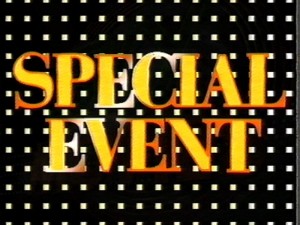
9 Steps to a Successful “Special Event”
Nearly every congregation plans special events. These are usually things like Vacation Bible Schools, Gospel Meetings, youth rallies, or other events. Sometimes, we have these events “just because we always have,” and then we wonder why things don’t go the way we would like.
 Recently, I was listening to a lesson from Mike Winkler from this year’s Polishing the Pulpit on planning a successful Gospel Meeting. While most of what he said were things that I knew, hearing them in one lesson was very helpful, and a much-needed reminder. His thoughts are reflected in much of today’s list, too.
Recently, I was listening to a lesson from Mike Winkler from this year’s Polishing the Pulpit on planning a successful Gospel Meeting. While most of what he said were things that I knew, hearing them in one lesson was very helpful, and a much-needed reminder. His thoughts are reflected in much of today’s list, too.
Here are some things you can implement, no matter the size of your congregation or your location to make sure your special events are truly successful.
1. Define “Success.” In other words, have a purpose. Is the event meant primarily to be evangelistic? Is it meant more to encourage the members? Is it to help people of a certain group or stage in life (parents, the grieving, etc.)? All are these are good, but they must be defined as plans begin, because that will help you frame every other decision made in all the planning.
2. Plan Year-Round (or Longer!). I am spending a decent amount of time this month planning our 2011 Vacation Bible School, which isn’t until June. While a lot of details cannot be worked out until our teachers are in place, much of the “infrastructure” of the event can be in place now. Don’t decide to have a Gospel Meeting in March when it is already December. If you do, it will not be as good as it could be.
3. Determine a Need or Opportunity and Meet It with the Theme. It is true that any Bible-based sermon or class is needed. I fully understand that. But, if you are going to call this a “special” service, then it needs to be special! Is there a need in your congregation for teaching on a certain topic? Is your community going through a specific change that could be a great opportunity for teaching and evangelism? See those needs, and meet them with your theme and lessons. For a VBS, it might just be some area that your “regular” Bible School program does not cover as well as another area.
4. Get Speakers Who Will Go All Out. For our adult classes in our VBS, we get the very best speakers we can possibly get within our budget. All have done a tremendous job, and our adult class attendance has increased over the past two years. The reason is simple: our members know they are going to learn, and they know their friends will be impressed by the speakers, too. I stay in continual contact with our speakers, sometimes to the point of overkill, simply to emphasize how seriously we take these sessions. (Oh, and an additional “tip.” If you are in charge of speakers for a special event, keep a running list for future years. I have an Evernote list of “VBS potential speakers” that I update constantly with speakers who will do a great job for us.)
5. Have Meetings, but Have Productive Meetings. I wrote a post over a year ago on having better meetings. Here is that post. The main point, though, is that you don’t need to meet just to meet. Be productive when you must meet, but you can do a lot of what is usually done in meetings via email or other technologies, so as not to wear people out of meetings. For our Vacation Bible School each year, we only average 3 teachers’ meetings, because our teachers know they can contact me at any time.
6. Advertisements Matter. If you are going to advertise via any medium, it needs to be done with excellence! You may not have a massive budget to make full-cover postcards and banners, but nearly any congregation can afford to take something to a print shop and have nice ads made. When the flyers, brochures, banners and other media are done well, members will be more likely to take them to their friends and neighbors.
7. Respect the Calendar and Clock. Yes, people should come no matter when something is held. The fact of the matter is, they won’t always come. And, let’s be honest, sometimes it’s our fault for not thinking about the calendar in our planning. Certain days and certain times of the year just work better. Also, respect the clock. PLEASE START AND END ON TIME! If you advertise a meeting from 7:00 until 8:00, do not start at 7:05. Start at 7:00, and be done at 8:00. People value their time about nearly anything else, and when we respect their time, they will notice.
8. Follow Up. If there is no plan for follow up, what is the point? It doesn’t have to be some elaborate program, but there needs to be some type of follow up. Cards, visits, emails,…whatever you can do. You don’t have to give some high-pressure “sales job,” but you do need to let people know that you are grateful that they gave of their time.
9. Bathe the Entire Process in Prayer. Every aspect needs to be put before God’s throne. From the selection of songs to the quality of the advertising; from the health of the speakers to the placing of the event on the calendar; every single aspect needs to be thought through, but it also needs to be prayed about. If we are going to do something for God, why would we ever try to do it without Him?
—————————-
What would you add?




3 Comments
Bryan Kirby
We also need to make certain that we value involvement as much as accomplishment. Sure, the same group of people that get things done every time can get them done again, but it may be MORE important to pull other people into the process than just “getting it done.” When a few people seem to do everything, fewer people will actually do anything!
Pingback:
Pingback: